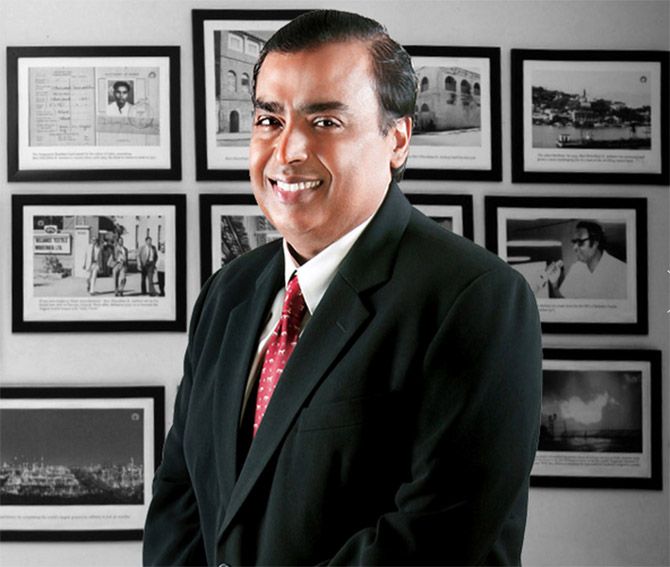At the heart of one of the biggest transformations in India's corporate history lies a plan to offer super-fast broadband services.
It was perhaps Reliance Industries (RIL) Chairman and Managing Director Mukesh Ambani's most expansive statement at a shareholders' meeting so far.
In it, he laid stress on a "New Reliance", whose growth will be based on what he termed two massive engines - hydrocarbons and consumer businesses.
Content matched intent, as more than half of the 6,600-word-long speech was devoted to the telecom and retail businesses.

At the heart of one of the biggest transformations in India's corporate history lies a plan to offer super-fast broadband services over mobile phones to the mass market - a gambit into which he has sunk about Rs 1 lakh crore.
Just for proportion, this is around a quarter of the combined investments in all RIL's businesses so far.
Investment already made, well before its scheduled rollout in December (six months later than market estimates), is around Rs 15,000 crore less than what Bharti Airtel has invested over 20 years.
Analysts say the company will have to put in at least another Rs 50,000 crore over the next five years before Reliance Jio turns profitable.
RIL's bet on retail consumers is, however, not difficult to understand. Last week, its stock rose 12 per cent, outperforming the benchmark indices by a good margin. But that was almost an exception.

For most of the last five years, its stock has underperformed the broader market.
Although refining and marketing continue to be a significant contributor to profitability, the exploration and production business contributed just 0.6 per cent to the company's earnings before interest, taxes and depreciation last year.
This tests investors' patience - most of them have fond memories of the stock beating benchmark indices year after year. RIL's return on capital employed has hit single digits for the first time since 1989-90.
 The near- to medium-term outlook is not bright either, given a slide in international crude oil prices and a global supply glut in petrochemicals.
The near- to medium-term outlook is not bright either, given a slide in international crude oil prices and a global supply glut in petrochemicals.
New businesses that RIL has entered in the last decade have also saddled the formerly debt-free behemoth with net debt of close to Rs 75,000 crore.
The projects include fuel retailing, shale gas and domestic oil exploration and production.
So Mr Ambani may have had no option but to go off the beaten track. There is decent logic behind his move. After all, data services account for just 15 per cent of the Indian mobile telephony market.
If Jio is able to disrupt the market by providing high-bandwidth data services at affordable cost, married to low-cost devices, the resulting push to revenues would be truly transformational for RIL. But can he pull it off?
 In the mobile business, acquiring spectrum and rolling out a nationwide network is not so difficult for a company of RIL's might - compared, at least, with attracting and retaining customers, which is a different ball game altogether.
In the mobile business, acquiring spectrum and rolling out a nationwide network is not so difficult for a company of RIL's might - compared, at least, with attracting and retaining customers, which is a different ball game altogether.
So far, most of the chatter about Reliance Jio has centred on the awesome capex; there have been too few details on how it plans to pull customers away from other networks.
A simple price war may not be enough. Reliance Jio will need to wean away India's top third of mobile users; these account for over two-thirds of the industry's revenues.
Its success will also be measured by its contribution to RIL's incremental profits. Analysts peg the break-even revenue market share at 20 per cent within five years of the launch.
A failure to make a good start down that road would take away some of the cheer when Mr Ambani rises to address his shareholders next year.











